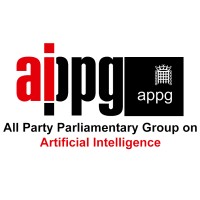
APPG AI
The APPG AI was set up in January 2017 to address ethical issues and new industry norms for applying Artificial Intelligence (AI), including machine learning, decision-making, natural language understanding, automated reasoning, autonomous systems, generative AI and other forms. Without being too technical, we will try to understand how AI will impact the lives of UK citizens and organisations, and subsequently, how should it be regulated? How will health, energy, insurance, consulting, financial, legal and knowledge-intensive business services be traded? How should the new business models be regulated, and what about the data? There is a lot to explore and evidence is key for regulation and policy. Pavilion Platform proudly hosts the All-Party Parliamentary Group on Artificial Intelligence (APPG AI), providing a centralised hub for all its resources, including our publications, event registrations and list of members and Associates: Pavilion for PC website: https://bicpavilion.com/ From your mobile: - Pavilion on App Store https://apple.co/4dCawaW - Pavilion on Google Play https://bit.ly/44Da6N3 The APPG AI is Co-Chaired by Allison Gardner, MP (Labour), and Lord Clement-Jones, CBE (Liberal Democrat). The APPG AI Vice Chairs are Dawn Butler MP (Labour) and Lord Ranger of Northwood (Kulveer Ranger) (Conservative). Lord Taylor of Warwick (John David Beckett Taylor) (Non-affiliated) is APPG AI Honorary Vice-Chair. The Group supporters – AMI Limited, Automated Analytics, British Standards Institution, Brunel University London, BT Group, Capgemini, Centre for the Governance of AI, CMS Cameron McKenna Nabarro Olswang, Cognizant, Deloitte, Duolingo, Ernst & Young, Hewlett Packard Enterprise, Innovate UK - UKRI, Onfido, Osborne Clarke, Rialto, Santander, Uptitude, and WindWorkX – enable us to raise the ambition of what we can achieve.






